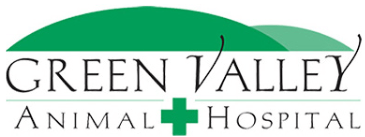 At Green Valley Animal Hospital, we are proud to offer a surgical suite complete with the latest in monitoring equipment – ensuring your pet’s surgery and anesthesia are always performed as safely as possible. Our facility’s full complement of monitoring equipment includes ECG, blood pressure, pulse oximetry, carbon dioxide levels and body temperature. Warm water heating blankets ensure your pet’s temperature is maintained throughout the procedure.
At Green Valley Animal Hospital, we are proud to offer a surgical suite complete with the latest in monitoring equipment – ensuring your pet’s surgery and anesthesia are always performed as safely as possible. Our facility’s full complement of monitoring equipment includes ECG, blood pressure, pulse oximetry, carbon dioxide levels and body temperature. Warm water heating blankets ensure your pet’s temperature is maintained throughout the procedure.
Soft Tissue Surgery
- Tumor/Growth/Lump Removal
- Perineal Urethrostomy
- Splenectomy
- Episioplasty
- Trauma Wound Repair
- Internal and External Biopsy Collection
- Exploratory Surgery
- Enterotomy/Gastrotomy-Obstruction Removal
- Anastomosis-Intestinal Tumor Removal
- Gastric Dilatation-Volvulus (Bloat Surgery)
- Cherry Eye Repair
- Eye Enucleation
- Eye Evisceration with Intrascleral Prosthesis
- Neuter/Spay
Surgery Preparations
Pre-operative surgical patients are generally admitted between 7am and 8am, Monday through Friday. For your convenience, your pet may be dropped off the evening before the scheduled procedure and boarded overnight.
Any pet undergoing an anesthetic procedure must be fasted prior to admission. Please do not give your pet any food after 8:00 PM the evening before the procedure, and do not feed them the morning of the procedure. Water may be offered as usual. All regular medications should be administered at their normal scheduled times unless otherwise directed.
Your pet’s safety is our number one concern. For that reason, all patients have a preoperative physical examination the morning of surgery to make sure your dog or cat hasn’t developed any physical issues that could cause problems with anesthesia. It is recommended that all pets undergo preoperative lab work. Pets over 7 are required to have at least a basic pre-op blood panel. This ensures we know about any abnormal blood counts or organ problems that could affect how they handle surgery and the anesthesia.
Post-Surgery Care & Monitoring
 A technician is assigned to each pet administered for surgery. Our veterinary nurses stay with your dog or cat from the moment he undergoes anesthesia until he is fully awake. Pets are never left unattended. Once awake, patients remain in our ICU where we can keep a close eye on them until they go home. If your pet needs to stay overnight, our live-in veterinary nurse is available to monitor your pet from time to time, however if more extensive monitoring is required, we would have them transferred to a local 24hr emergency facility.
A technician is assigned to each pet administered for surgery. Our veterinary nurses stay with your dog or cat from the moment he undergoes anesthesia until he is fully awake. Pets are never left unattended. Once awake, patients remain in our ICU where we can keep a close eye on them until they go home. If your pet needs to stay overnight, our live-in veterinary nurse is available to monitor your pet from time to time, however if more extensive monitoring is required, we would have them transferred to a local 24hr emergency facility.
Pain management is a crucial aspect of any pet surgery, and we go to great lengths to make sure our patients are as comfortable as possible. Our hospital has a multitude of pain-killers available for our patients and we routinely use combinations of drugs to ensure a quick and comfortable recovery for your dog or cat. Our staff is trained in Constant Rate Infusion (CRI) pain medication so that animals will be kept pain free throughout their stay. Animals feel pain just like we do and making sure they have the best in pain management after surgery is very important to us.
Ready To Become Part Of The Family At Green Valley?
Just give us a call to schedule an appointment!
